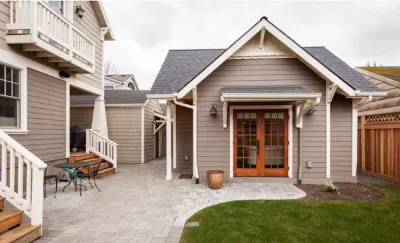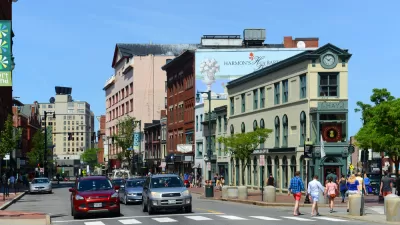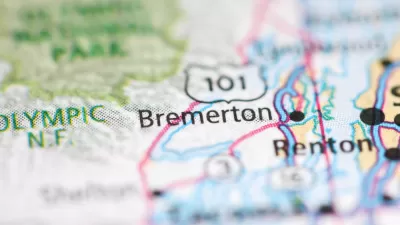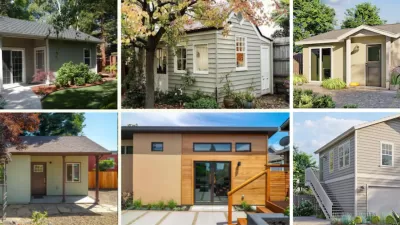Local policies and programs can encourage homeowner participation and increase the number of ADUs available as low-cost rentals.

In a report for Brookings, Jenny Schuetz and Eve Devens describe the potential of accessory dwelling units (ADUs), sometimes known as granny flats or casitas, to make a dent in the housing crisis and offer another option for affordable rental housing in residential neighborhoods.
Using Los Angeles as an example, the authors note that one of the keys to expanding ADU stock is homeowner participation. “While ADU production overall has steadily increased in recent years, it is not obvious that the typical Los Angeles homeowner wants to enter a long-term commitment to lease their ADU to low-income renters and comply with the rules governing housing subsidies.”
The authors note that the Los Angeles region offers a useful model for how ADU policies can impact affordable housing production. “In the city of Los Angeles, Los Angeles County, and Pasadena, ADUs account for over two-thirds of all housing permits between 2020 and 2022. However, no data is available on how many of these ADUs are available for rent on the open market, and how many are reserved for personal use or family members.”
The report outlines how four pilot ADU programs in the L.A. area are helping reach housing goals, each with a slightly different emphasis. “The city of Los Angeles focused particularly on matching low-income older adults with ADUs, noting that many seniors are familiar with small homes in low-density residential neighborhoods.” Meanwhile, Los Angeles County reserved ADUs for people experiencing homelessness.
Ultimately, the authors conclude, “To make ADUs a larger segment of the affordable housing market over the coming years will require both more financial support as well as substantially higher take-up rates among homeowners.”
FULL STORY: ADUs could expand the affordable housing toolkit—if local governments can work through some growing pains

Study: Maui’s Plan to Convert Vacation Rentals to Long-Term Housing Could Cause Nearly $1 Billion Economic Loss
The plan would reduce visitor accommodation by 25,% resulting in 1,900 jobs lost.

North Texas Transit Leaders Tout Benefits of TOD for Growing Region
At a summit focused on transit-oriented development, policymakers discussed how North Texas’ expanded light rail system can serve as a tool for economic growth.

Using Old Oil and Gas Wells for Green Energy Storage
Penn State researchers have found that repurposing abandoned oil and gas wells for geothermal-assisted compressed-air energy storage can boost efficiency, reduce environmental risks, and support clean energy and job transitions.

Private Donations Propel Early Restoration of Palisades Playground
Los Angeles has secured over $1.3 million in private funding to restore the Pacific Palisades playground months ahead of schedule, creating a modern, accessible space that supports community healing after recent wildfires.

From Blight to Benefit: Early Results From California’s Equitable Cleanup Program
The Equitable Community Revitalization Grant (ECRG) program is reshaping brownfield redevelopment by prioritizing projects in low-income and environmental justice communities, emphasizing equity, transparency, and community benefits.

Planting Relief: Tackling Las Vegas Heat One Tree at a Time
Nevada Plants, a Las Vegas-based nonprofit, is combating the city’s extreme urban heat by giving away trees to residents in underserved neighborhoods, promoting shade, sustainability, and community health.
Urban Design for Planners 1: Software Tools
This six-course series explores essential urban design concepts using open source software and equips planners with the tools they need to participate fully in the urban design process.
Planning for Universal Design
Learn the tools for implementing Universal Design in planning regulations.
Ascent Environmental
Borough of Carlisle
Institute for Housing and Urban Development Studies (IHS)
City of Grandview
Harvard GSD Executive Education
Toledo-Lucas County Plan Commissions
Salt Lake City
NYU Wagner Graduate School of Public Service





























